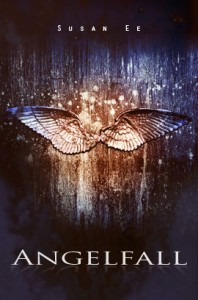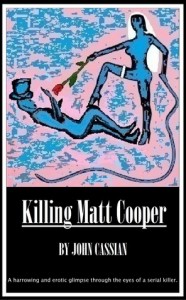OK, like so many of my Up For Discussion posts, this one is a bit of a rant. It came around for two reasons.
- I’m not a big fan of the modern novella. I can’t really quibble with a writing format that includes Of Mice and Men, Animal Farm and A Christmas Carol, but I’ve yet to find many modern equivalents that compare. Especially with recent authors’ tendency to end on cliffhangers and serialise. (I could write a rant on that alone.)
- Someone finally provided me with an obvious, technical and documented difference between the three.
I may have known the following during my Freshman Creative Writing course, but I’d fully forgotten. So, while I have been consistently annoyed at all the 20 page novellas hitting my review request box or the Amazon free list, I couldn’t quite pinpoint what I was disliking so very, very much about them. In my mind they were wrong—plainly wrong, even if I couldn’t say exactly why.
For simple shelving purposes, I generally considered anything more than 100 pages a novel and anything less a short story, but I had a vague notion that there were more detailed classifications and that surely some of the ridiculously short stories I was encountering couldn’t be novellas or even novelettes.
Well, thanks to Goodreads member Serendi, who had the forethought of checking some of the better known literary award rules (Science Fiction and Fantasy Writers of America and Hugos), I decided to do a little digging too and found a basic consensus. While there is no official, universally accepted, numerical definition of the difference between short stories, novellas, novelettes, and novels there does seem to be a fairly firm consensus in the literary world.
Behnam Mirzababazadeh Fomeshi, from Shiraz University posted an interesting slideshow titled What is a Short Story on academia.edu if you’re interested. But it can basically be broken down like this:
- Novel, over ~40,000 words
- Novella, ~17,500 to ~40,000 words
- Novelette, ~7,500 to ~17,500 words
- Short story, under ~7,500 words.
- Flash Fiction, under ~1,000
Taking your average 250 words to the page, that comes to approximately 160 for a novel, 70-159 for a novella, 30-69 for a novelette, and everything below that as a short story (or flash fiction if it’s really short). Again, there is some flex in there; Carsson-Newman College for example, would set the limit between novel and novella at 50,000 instead of 40,000. But I found more similarities than differences as I searched.
My point is that there are fairly set parameters. There are generally accepted definitions to these terms. Authors SHOULD NOT be arbitrarily naming their pieces of work a novella or novelette when it is patently a short story. It’s cheap. It’s cheating. It comes across as a blatant attempt to give your work more gravitas than it deserves.
Now, I’m not trying to disparage short stories. It takes a lot of talent to squeeze a plot and meaningfulness into ~7,500 words. Some might argue that it’s harder. So there’s no shame in being a short story writer. Sure, you can’t call yourself a “novelist,” and that does have such a nice ring to it. It feels heady and heavy. While short storyist doesn’t quite feel the same. But heck, my own book is roughly 250 pages long and I still don’t know if I’d have the balls to call myself a novelist!
I’m just gonna cut loose and be a little snippy here, because what I think when a 15 page ‘novella’ hits my review request list (or I encounter it elsewhere) is that the author is either a faker who wants his/her work to seem more important than it is or doesn’t know the basics of their own art. Neither reflects well on the author.
I don’t write short stories. I don’t write novellas. I’ve never written a novelette or tried my hand at flash fiction. The stories in my head flow for pages and pages and pages. But I look at a 10 page ‘novella’ and sneer. Is this really the response anyone could be seeking from your readers? So I would really, really appreciate it if authors took the time to ensure they labeled their less-than-novel-length writing appropriately.
Rant over.



